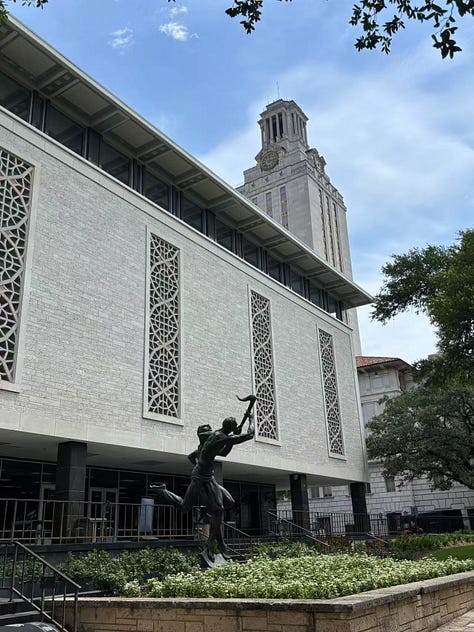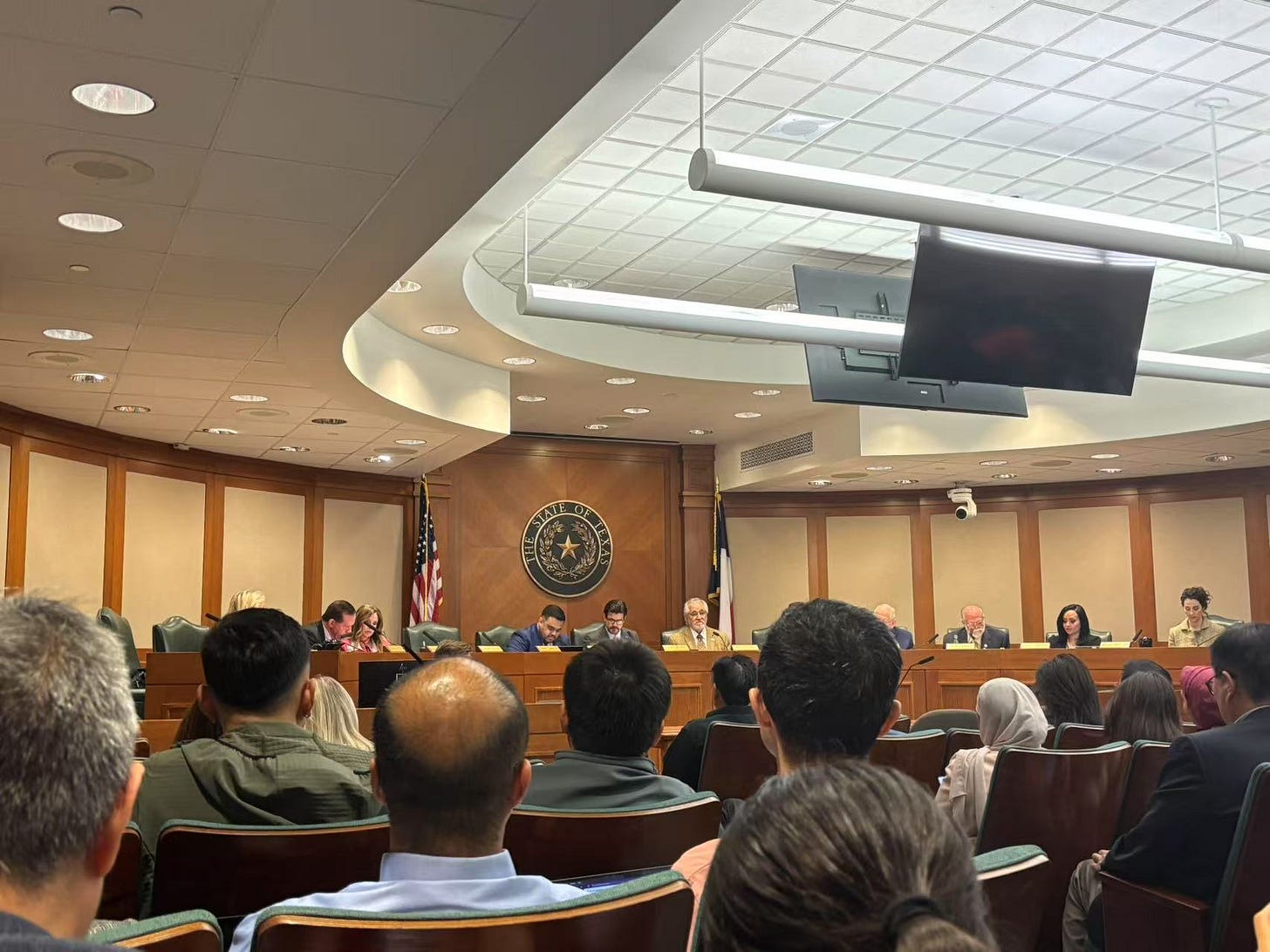“Staying in the Storm”: Chinese Students at UT Austin Confront Rising Conservatism in Texas
“I love Austin—the weather, the community, the pace of life,” said Echo. “If I had to do it over again, I might have started elsewhere. But I’m not giving up on this place.”
As Texas edges further toward political conservatism, international students—particularly those from China—are feeling the brunt of policy changes that are reshaping the state’s social and educational landscape. From restrictive property laws to the rollback of diversity initiatives, students at the University of Texas at Austin (UT Austin) are not just navigating academics, but also a tightening web of legal, cultural, and political pressures.
Yet, amid this climate of uncertainty, many students are choosing not to stay silent. They are testifying at legislative hearings, organizing advocacy efforts, leaning into community networks, and making the conscious choice to remain in Texas—despite the storm.
New Legislation Raises Alarms
The passage of Texas Senate Bill 17 (SB17), signed into law by Governor Greg Abbott, has sent ripples through the international student community. The law restricts nationals from China, Iran, North Korea, and Russia—regardless of visa status—from purchasing property beyond a single primary residence. It also caps rental leases at one year for international students, making housing more expensive and less stable.
“This isn’t just about buying property,” said Echo (a pseudonym), a recent UT Austin graduate who studied education policy. “This law challenges our very legitimacy. It’s saying: ‘You’re not welcome here.’ Just being born in a certain country becomes a liability.”
Echo, who has been deeply involved in advocacy efforts, called the legislation “blatantly discriminatory,” adding that it treats students and workers from these countries as potential spies without due cause. “We’re here legally. We contribute to this society. But our existence is being criminalized.”
Toby, an undergraduate economics major, offered a systemic view: “From an economic standpoint, this kind of law creates spillover effects. Landlords now ask Asian applicants—regardless of nationality—for documents like I-20 or visa papers. That’s not just unfair, it’s un-American.”
A Voice at the Capitol
Both Echo and Toby attended the SB17 public hearing at the Texas Capitol earlier this year. For Echo, it was her first time engaging directly with the state’s legislative process.
“I found out about the hearing the night before through a WeChat post. Even though I had class the next day, I went because I couldn’t stay quiet,” she recalled. “I was shocked when I got there—almost everyone testifying was Asian. Where were the other communities?”
Echo waited nearly ten hours before speaking. “I was nervous. I was the only F-1 student to testify in person. But I had to say something, because this law attacks our future.”
Toby echoed the same resolve. “This directly impacts us. If we don’t speak up, who will?” He was also struck by the solidarity among the Chinese diaspora. “People came from Houston and Dallas. That’s when I really felt: we’re not alone.”
A Measured Victory
Despite the passage of SB17, students say their advocacy made a tangible difference. Originally, the bill included even harsher provisions, such as a total ban on long-term renting for visa holders.
“Our fight wasn’t futile,” said Toby. “We managed to push back on the worst parts. Now, at least international students can rent for up to one year after graduation. That one year could change someone’s life.”
Echo agreed. “We organized social media campaigns, reached out to lawmakers, and built coalitions. At one point, even non-Chinese students—Vietnamese, American, Latino—were asking how they could help. That matters.”
Yet both students believe the work isn’t done. “This isn’t just a Chinese issue,” said Echo. “It’s about human dignity. We need to build cross-racial, cross-issue solidarity.”









The Changing Atmosphere at UT Austin
While UT Austin is widely seen as one of Texas’s more progressive institutions, students say the campus hasn’t been immune to political pressure. In early 2024, the university’s president began implementing structural changes aligned with state priorities—dismantling the Diversity, Equity, and Inclusion (DEI) office and ending financial aid programs for undocumented students.
“In class and within our department, the culture remains inclusive,” said Echo. “But outside the classroom, we’ve felt the shift. Students who relied on programs like TASFA [Texas Application for State Financial Aid] are being left behind.”
Toby acknowledged that UT has tried to stay neutral. “Unlike other schools, they didn’t publicly condemn federal visa threats. But at least they didn’t align with the far-right narrative either. It’s a delicate balance.”
Why DEI Still Matters
Both students emphasized the importance of DEI—even if it sometimes creates tensions within the Asian American community.
“I support DEI, even though I’ve seen high-achieving Chinese students lose opportunities because of it,” said Echo. “It’s not about perfection. It’s about historical equity. We can’t erase opportunities just because they’re imperfect.”
Toby added: “Without DEI, the most marginalized communities—Black, Latino, first-gen students—will suffer even more. As Chinese students, we may not always benefit, but removing DEI won’t help us. It will just make the system colder.”
Freedom, with Limits
When it comes to academic freedom, both students admitted to feeling subtle pressures.
“I once wrote a paper on U.S. immigration policy during the Trump era,” said Echo. “I worried that my critique could be interpreted politically. With help from my professor, I reframed it—but that fear was real.”
Toby, who studies international relations, said he often self-censors. “There’s no official ban, but we know that certain topics—like socialism or critiques of U.S. foreign policy—could raise red flags. When you’re on a visa, you always think twice.”
Community as Lifeline
Despite political headwinds, both Echo and Toby praised Austin’s Chinese community for its warmth and support. From job referrals to emotional backing, local Chinese professionals and students alike have become a vital resource.
“When I was looking for jobs, older Chinese women mentored me, offered contacts, and shared encouragement,” said Echo. “I even met some at an immigration fair who said, ‘We’ve got your back.’”
Toby, while more self-reliant, acknowledged the importance of these informal networks. “People reached out even when I didn’t ask. That means a lot.”
To Stay or To Go?
Despite the tightening environment, both students expressed a strong desire to stay in Texas.
“I love Austin—the weather, the community, the pace of life,” said Echo. “If I had to do it over again, I might have started elsewhere. But I’m not giving up on this place.”
Toby agreed. “Texas isn’t perfect, but there’s something special here. If the politics eased up, Austin would be an ideal place to build a life.”
Advice for the Next Generation
For students considering UT Austin, Echo advised: “Be true to yourself. Don’t rush into decisions. When one path closes, another opens—if you’re patient.”
Toby added: “Don’t just look at rankings. Understand the politics, culture, and laws of the place you choose. That context can shape everything.”
A Future Still Being Written
In a state caught between tradition and transformation, Chinese international students are becoming more than just visitors. They are emerging as community advocates, legal witnesses, and cultural contributors. They are demanding a stake in the very society that often sees them as outsiders.
And while they may be staying in the storm, they are refusing to be swept away by it.




